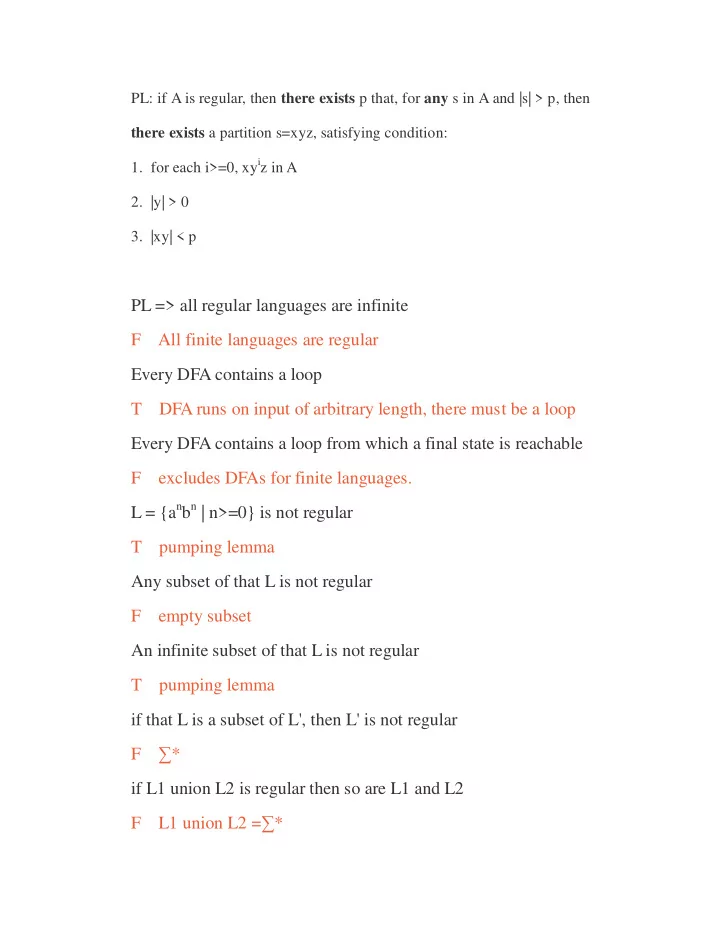

PL: if A is regular, then there exists p that, for any s in A and |s| > p, then there exists a partition s=xyz, satisfying condition: 1. for each i>=0, xy i z in A 2. |y| > 0 3. |xy| < p PL => all regular languages are infinite F All finite languages are regular Every DFA contains a loop T DFA runs on input of arbitrary length, there must be a loop Every DFA contains a loop from which a final state is reachable F excludes DFAs for finite languages. L = {a n b n | n>=0} is not regular T pumping lemma Any subset of that L is not regular F empty subset An infinite subset of that L is not regular T pumping lemma if that L is a subset of L', then L' is not regular F ∑ * if L1 union L2 is regular then so are L1 and L2 F L1 union L2 = ∑ *
if L1 intersection L2 is regular then so are L1 and L2 F L1 and L2 disjoint If L1 and L2 are regular, then L1 union L2 is regular T closure property If L1 and L2 are regular, then L1 intersection L2 is regular T closure property Application of Pumping Lemma. Σ ={0,1,+,=} ADD = {a=b+c | a,b,c are binary integers and a is sum of b and c}. Solution: a=10 p , b=1 p , c= 1 |xy| < p and |y| > 1=> x= y=10 i or x=10 i y = 0 j Proof by closure properties of regular expression If L intersects L’ (L’ is regular) is not regular, then L is not regular. Σ ={0,1}, L= {the number of 0’s and the number of 1’s are equal} L intersects L’={ 0 i 1 j | i,j >= 0} = { 0 i 1 i | i >= 0} L’ is regular, and L intersects L’ is not regular => L is not regular.
Many elements of programming languages are regular, e.g. Identifiers: the first being a letter of the alphabet or an underline, and the remaining being any letter of the alphabet, any numeric digit, or the underline int/float keywords. A C program is not regular. main(){return (…(0)…) ;}
Recommend
More recommend